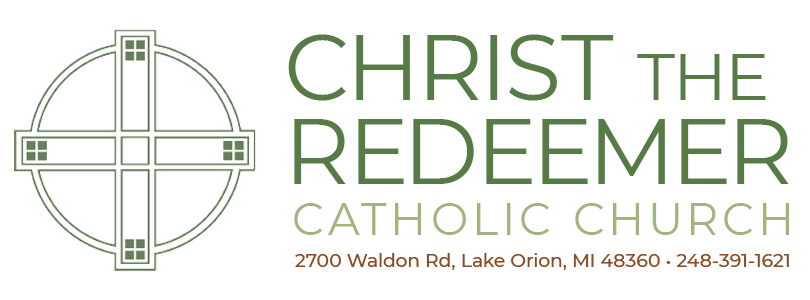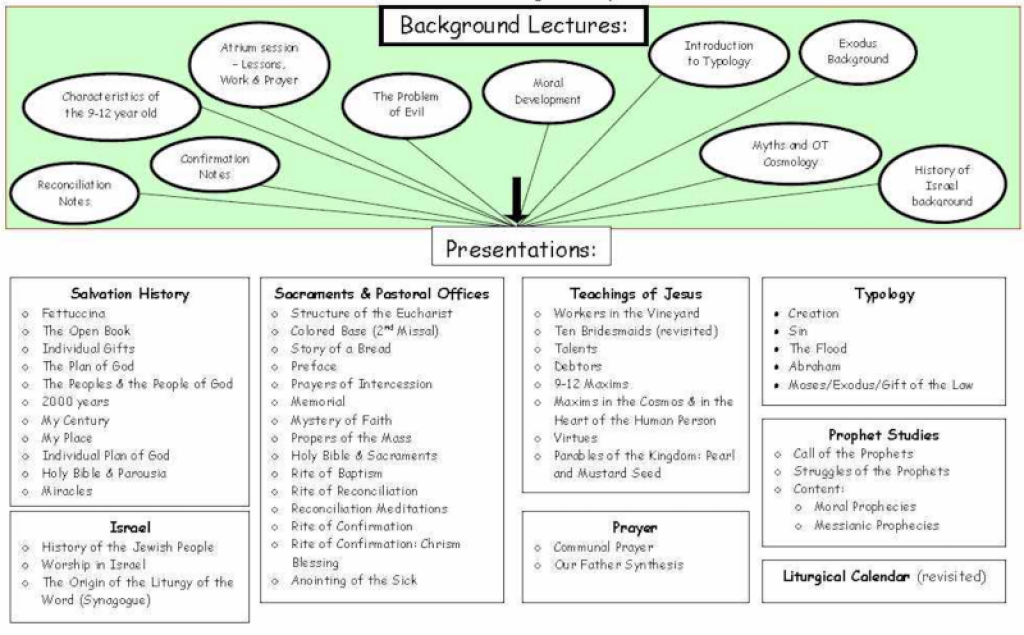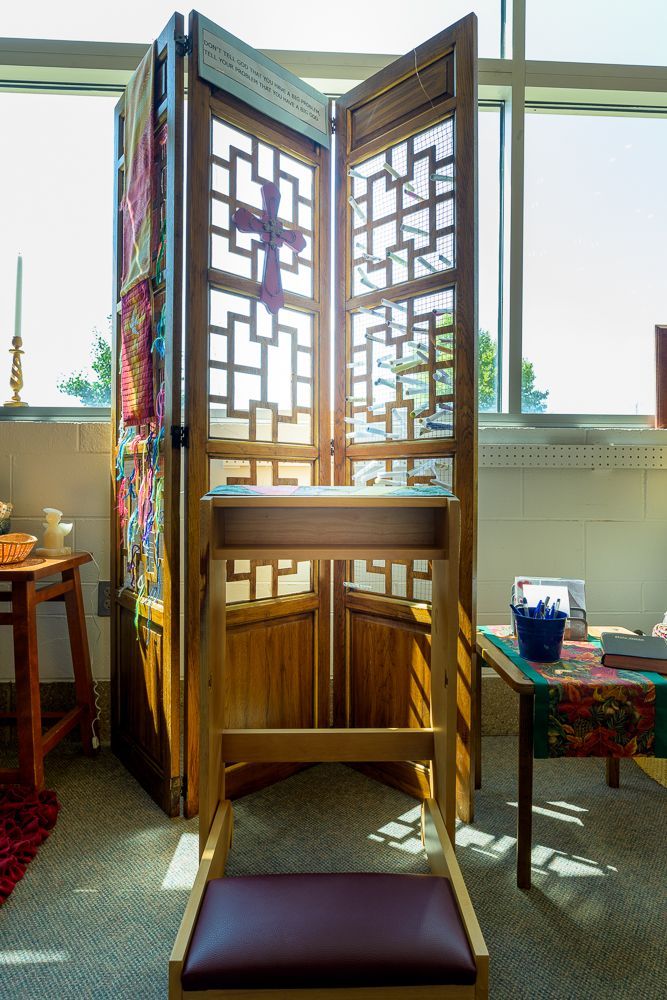SPIRITUAL FORMATION/CURRICULUM
“What I hear, I forget. What I see, I remember. What I do, I understand.”
Prayer: Develop both an individual relationship with the Good Shepherd and a communal prayer life with the invitation to organize and lead group prayer.
The Plan of God: Use a variety of materials to explore and recognize history as God’s plan.
- Study the rise, decline, and inheritance of great civilizations in light of the Plan of God
- Study the presence of good and evil in light of the Plan of God
- Reflect on one’s own ‘blank page’ and our own participation in the Plan of God.
Kingdom of God: Continue and deepen Level II studies of the History of the Kingdom of God and its three major moments of Creation, Redemption, and Parousia.
History of Israel: Learn the history of Israel as God’s chosen people.
Hebrew Scriptures (Old Testament)/Typology Studies: Study and reflect on selected OT events in light of the Plan of God. Typology includes studying the event itself and then reflecting on similarities throughout time in Redemption (Christ’) and Parousia (Second Coming of Christ). Typology studies include:
- Creation
- Original Sin
- The Flood
- Abraham
- Moses and the Gift of the Law
Prophets: Study and reflect on the Old Testament prophets, including their messianic preaching, their moral preaching, their vocation, and their struggles
Eucharist/The Mass: Explore a variety of materials to deepen one’s understanding and love of the Eucharist and the Mass. Studies include:
- The structure of the Mass
- The prayers and liturgical gestures of the Mass
- The Mass as memorial
- The historical roots of the Mass
Sacraments: Explore and ponder the rites, prayers, liturgical gestures, and liturgical articles of:
- Baptism
- Confirmation
- Reconciliation
- Anointing of the Sick
Life of Christ:
- Infancy and Paschal Narratives: Continue personal study and meditation on the infancy narratives and the paschal mystery narratives (begun in Levels I and II)
- Miracles: Explore selected miracles of Christ in light of the history of the Kingdom of God: Christ’s fulfillment of the prophecies; Christ’s continuing the work of the miracle in our lives today through the Bible and Sacraments; Christ’s miracles as ‘gestures’ to reveal the nature of the Parousia.





